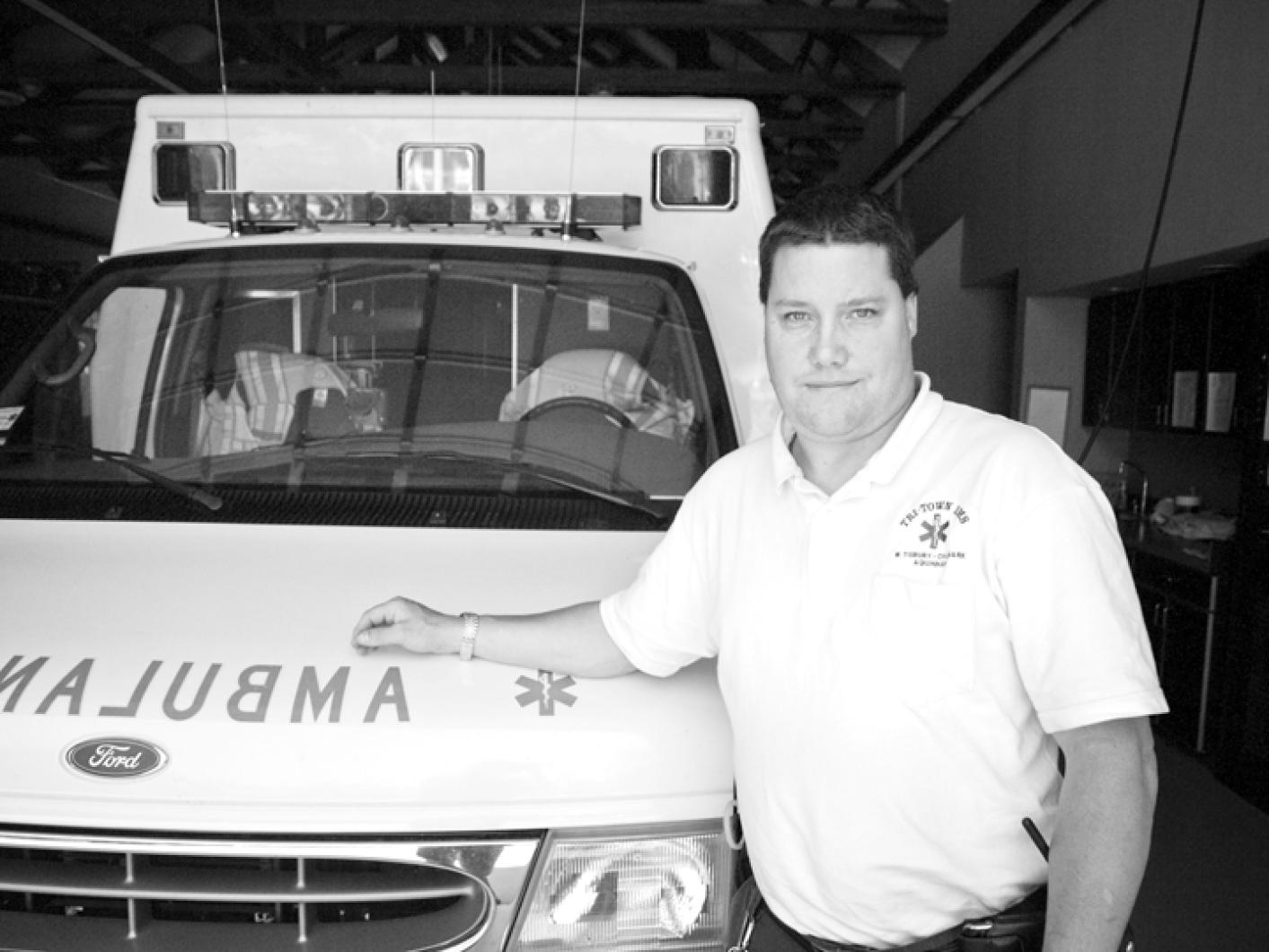Working as a paramedic on a mobile intensive care unit in New Jersey, Robert Bellinger remembers well the morning when a friend came into the diner where he was eating breakfast to tell him that something was amiss in Manhattan. A plane had crashed into one of the twin towers of the World Trade Center, a mere 12 miles from where Mr. Bellinger sat.
He rushed to a nearby hillside with a panoramic view of the city, just in time to see a another plane hit the second tower. The first already billowed with smoke. He immediately recalled the day his now deceased, World War II veteran grandfather shared his experience of the bombing at Pearl Harbor. “I remember him saying ‘Bobby, you don’t ever want to experience anything like that in your life,’” said Mr. Bellinger in an interview this week.
But on Sept. 11, 2001, he did indeed experience a horror of massive proportions. “At that point we realized that, my God, we’re under attack,” he said.
He would spend the next two or three days with no sleep, doing his best to assist in the crisis that claimed the lives of thousands of trade center professionals and rescue workers. His wife, who was at the time a dispatcher for his mobile ICU unit, was also working that day. “I don’t think I’ve ever cried as much with somebody, after seeing what I saw,” Mr. Bellinger said.
In his new role as chief of Tri-Town Ambulance, the emergency response unit for Chilmark, Aquinnah and West Tisbury, Mr. Bellinger will bring nearly 25 years of experience to the job, including a hand in the rescue effort for that still-unforgettable day.
He first became involved with emergency medical services at age 17 and eventually went on to become a paramedic. He was operational coordinator for his mobile ICU for some seven years before, among other things, the World Trade Center attacks prompted him to pursue a climate and lifestyle with less anxiety. He and his wife, Trina, relocated to Cape Cod, where he had spent many summer vacations growing up. He spent a few years doing a number of different jobs, including sometimes making the four-hour commute to work back in New Jersey. In 2008, he was hired as the advanced life support coordinator for Tri-Town Ambulance.
And now, two years, later, he’s been appointed chief, though he said he’d rather be thought of in different terms. “I’m not a chief, I’m a coach,” he said. And the ambulance unit is a team, he added. “With everybody’s input, we can bring the squad of the three towns up to what it needs to be,” he said.
Right now, Mr. Bellinger said that he feels that Tri-Town is behind the other towns in terms of efficiency, something he would like to change. In his years here so far, he said he’s been quietly trying to figure out what needs to be changed, and what can remain the same. “As the chief, slash, coach you want to make sure that everybody is playing well together. So you’ve got to compromise a little to the left, compromise a little to the right and hopefully everything will wind up in the center and continue on a straight line,” he said.
He said the most pressing issue right now is to figure out how to address access issues at town beaches. Being from New Jersey, he said he’s used to well-marked roads, and still has trouble navigating his way through the winding dirt roads up-Island. But with two drownings at Chilmark beaches last summer, in which emergency medical personnel had difficulty reaching the victims, and had trouble with communication and coordination, he said it’s time to put in place some effective methods for public safety on the beach.
“One of my ideas, and I don’t know if it would fly, would be to put buoys or balls out in the water,” he said. The buoys would be easily visible from the shore, but could not interfere with boat navigation systems. The buoys would come in different colors to mark different locations.
“If somebody has a problem, and they’re on the beach, and they don’t know what beach they’re on, they just say ‘Listen, I’m between a red and a yellow, looks like balls, out in the water,’” said Mr. Bellinger. Medics could then refer to a map which would show them the exact location of the buoys. “It would be something where people would see, at least during the daytime, to be able to do that,” he said. “These are ideas that we’re looking to do.”
Mr. Bellinger said his main goal as chief is to coordinate the squad into a more efficient unit. In keeping with his coach and team analogy, he compared the organization to a school bus full of people. “I’m the driver, and the people in the back tell me where to go,” he said. “If the bus develops a flat tire, everybody’s got to get off and change the tire.”
By making it a team effort, he said the towns can expect a more streamlined squad. “The bus is going to go forward,” he said.




Comments
Comment policy »